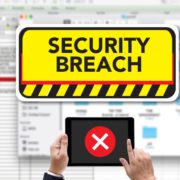Serious Security: How to Prevent Data Breaches in the Workplace
Did you know that more than 3 billion Yahoo accounts were hacked back in 2016, resulting in one of the largest data breaches worldwide?
Moreover, studies show that approximately 60 million Americans are affected by identity theft each year. Since we all live in a broad and sophisticated digital world, it’s only natural to try to learn how to prevent data breaches at home and in the workplace.
Luckily, data breach prevention can be done in numerous ways. Installing an antivirus program is the first line of defense, but you can do much more than that. If you own a business, it’s imperative that you protect the sensitive data of your clients.
Here are a few data breach prevention techniques you should know about in 2019.
How To Prevent Data Breaches In the Workplace – A Complete Guide
Data breaches can cause massive financial problems for companies of all sizes. On top of that, a serious massive breach can also ruin the image of a business, making it unable to attract more clients in the future. Here’s how you can prevent that at your workplace.
1. Don’t Use the Same Password for All Accounts
Most employees have multiple accounts for various applications and programs. They might even have multiple email addresses from various providers. After a while, it seems logical to use the same password for multiple accounts, so that you don’t forget it.
However, this is a recipe for disaster because cybercriminals can quickly take advantage of that. Once they have discovered the password, they can use it to hack into all your accounts and cause a massive data breach. To prevent that, make sure that you and your employees use different passwords for different accounts.
If it becomes harder to remember these passwords, use special programs to keep track of them. Some programs offer encryption features and they can keep all your passwords safe. Do not try to write passwords on a piece of paper because this can easily get stolen by a malevolent person.
2. Don’t Leave Computers Unattended
It’s customary for employees to leave computers unattended when they go for their lunch break or leave the office for whatever reason. This is not a good thing because someone can quickly have access to sensitive data in a matter of seconds. Cybercriminals can steal massive amounts of data onto a hard drive and the security of the business is compromised.
That’s why you should instruct workers to lock their computers when they get away from their desk. At the end of the workday, it would also be a good idea to lock laptops containing sensitive information in a drawer or cabinet. This prevents digital theft in the workplace and gives you more peace of mind.
3. Don’t Forget Private Documents in Meeting Rooms
Conference rooms provide a great place for business discussions and making important decisions within a company. However, they can also provide an opportunity for malevolent people to steal sensitive data written on papers. That’s why you should be very careful when leaving the conference room and make sure that you didn’t forget any important document on the desk.
There are special machines called paper shredders out there. They are designed specifically to cut sheets of paper into a thousand pieces, so no sensitive data can be retrieved by someone else. After leaving the conference room, you can put some of the documents containing vital information in the paper shredders. By doing so, you know for sure that no one will ever steal vital information from documents.
4. Be Careful When Downloading Apps on Corporate Devices
Malware and digital theft extend beyond computers and laptops these days. Digital thieves have become very smart and they can insert viruses into mobile applications too. By downloading a single app from an unauthorized source, you risk getting a nasty virus into your corporate smartphone or tablet which can quickly steal contact lists, financial information, and more.
That’s why you should install antivirus programs on corporate devices as well such as smartphones and tablets. Moreover, make sure that no employee can download any app on the internet because some of these apps contain viruses. If you need to download mobile apps, do it only from authorized sources and always scan the app with an antivirus program.
5. Be Mindful of Links and Attachments in Emails
You probably already knew that you should be careful with emails as they can contain a wide variety of viruses, adware, malware, and other pieces of code designed to cause a data breach. However, cybercriminals have devised complex strategies to fool people and make them believe they are in contact with a legitimate business or person.
For example, some hackers create entire web pages that look identical to the ones you probably use frequently such as the Gmail login page, Facebook login page, etc. Then they insert links to make you type your sensitive data in an attempt to log in to these websites. Your data is then sent as a text file directly to the hacker. This is called phishing and it’s very dangerous.
One way to prevent that is to check if login pages have security certificates (SSL). if the green padlock is not present, you should leave the site immediately. Also, keep in mind that legitimate organizations will usually refer to you by your real name at the beginning of an email. They will say something like “Dear John Doe” while hackers might begin with something like “Dear customer”.
Take Your Computer Security to the Next Level
Now you know how to prevent data breaches in the workplace and protect the sensitive data of your employees and clients. These are just a few methods, but there are plenty of others, so make sure that you explore this subject thoroughly.
The best thing you can do right now is to learn more about cybersecurity. For example, check out our article on phishing to understand how malevolent people on the internet can create elaborate strategies to steal your financial or personal information.



